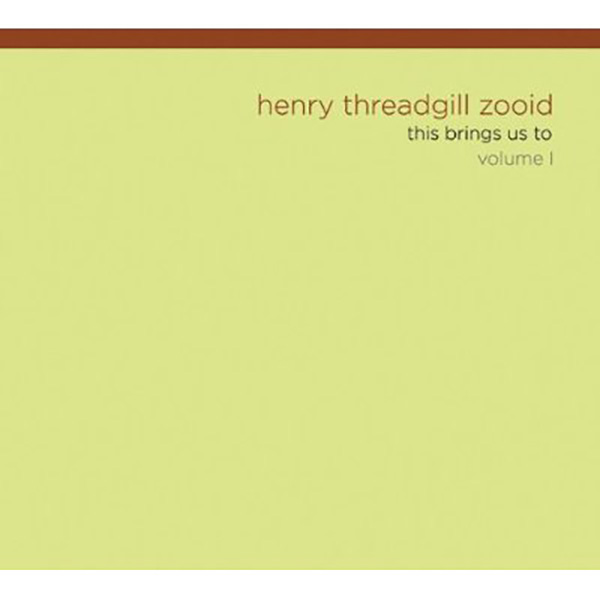
by Tim Owen
December 10, 2009
/ ALBUM
Threadgill is a true original with one foot in the jazz tradition but creating music that's beyond categorisation
A new recording by Henry Threadgill is always welcome, particularly in the UK where it’s the only way to keep up to date with his sound. I vaguely recall his conduction of the Jazz Warriors for the Camden Jazz Festival, back in 1990, but if he’s visited these shores since then I missed it; and since his recordings are intermittent each new title is welcome.
This Brings Us To, Volume 1 is Threadgill’s first release since Zooid’s previous Up Popped The Two Lips and its companion volume, Everybody’s Mouth’s a Book, by another Threadgill ensemble, Make A Move (both on Pi, released simultaneously in 2001). There are two survivors from the earlier Zooid line-up in guitarist Liberty Ellman and trombonist and tuba player Jose Davilla, while bass guitarist Stomu Takeishi has been transferred from Make a Move. The current Zooid is completed by drummer Elliot Humberto Kavee.
Lips and Book were especially welcome, coming as they did after the end of Threadgill’s association with both the Columbia label and his producer and champion Bill Laswell. That association first bore fruit with the Too Much Sugar for a Dime album, released on Laswell’s Axiom label in 1993, and Laswell proved to be an ideal production partner, with an ability to bring out the essential richness of the bass pulse in Threadgill’s music. This pulse typically emanates not from an electric or double bass but from low-end brass instruments, principally the trombone and particularly the tuba, and sometimes, as on the current album, from the (acoustic) bass guitar.
This instrumentation gives all of Threadgill’s music a pronounced bass bounce that evokes jazz brass traditions across the board but also frees the ensemble sound from the rootedness that the bass often asserts. Threadgill’s music has both the lightness usually associated with chamber music and the fire of post-60s American jazz. Charles Mingus is one obvious point of comparison; but where Mingus’ sound was straight out of the classic big jazz band tradition Threadgill’s is altogether more idiosyncratic, with its borrowings from different musical traditions, be it Latin, African, or languages of contemporary composition such as serialism, to characterize the subtle and highly particular instrumental colouring of his various ensembles.
This Brings Us To initially sounds less immediate than previous Threadgill recordings, but that impression dissipates with increased familiarity and now the album sounds to me to be as elegantly down-and dirty as ever, albeit with a rather more rarefied feeling than I’ve come to expect. An explanation for this can be found in an excellent interview Threadgill recently gave to The Wire magazine, in which he spoke of his latest compositional strategy, “an intervallic language that’s kind of like serialism”, where the intervals dictate everything from harmony and melody to improvisation.
Threadgill explains how this system allows Zooid to improvise spontaneously since “there’s no formula that you can apply…the traditional harmonic stuff from the major/minor language is not there”; (you can read the unedited interview at http://thewire.co.uk/articles/3251/). Threadgill seems not to be directly concerned, as were Mingus and his beloved Duke, with writing with specific instrumentalists in mind; nevertheless Threadgill’s choices of instrumentalist are so precise that the tone of the chosen practitioner doubtless colours the resultant ensemble sound, the yoking of which to fresh compositional structures makes Threadgill a true original, with one foot in the jazz tradition but creating music that’s beyond category.
And of course there’s one other thing to mention: Threadgill’s own playing. His sound on alto is as distinctive as they come; always clear and imperious, when he solos his voice rises to a glorious soaring cry of real emotional intensity.
blog comments powered by Disqus